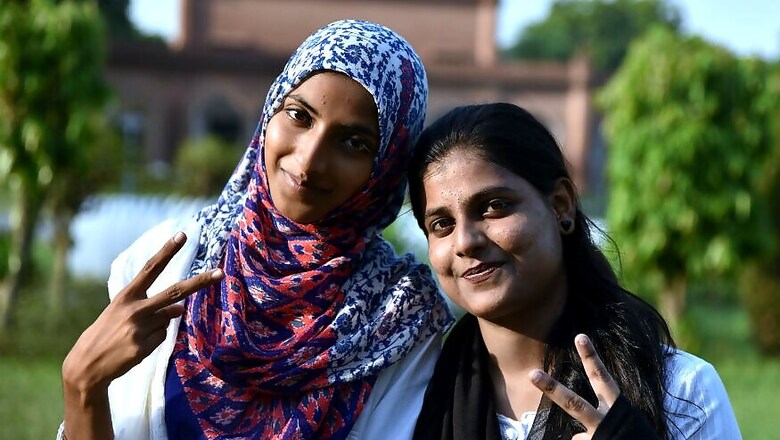
views
Aligarh: The “unprecedented” election of three women candidates to the to the ‘cabinet’ of Aligarh Muslim University (AMU) Students’ Union has given fresh lease of life to efforts to clean the campus off the double scourge of criminalization of politics and violent regionalism.
Sadaf Rasool, Labiba Sherwani and Ghazala Ahmed won for the cabinet – a panel tasked with implementing the student’s union’s tasks – while a former cabinet member Kehkashan Khanam put up a good fight to the prestigious post of AMU Union vice-president in the polls held on Sunday.
The AMU Students’ Union comprises president, vice-president, secretary and 10 executive members elected in the cabinet who are entrusted with responsibility and budget to carry out Union programs throughout its tenure. The entry of three women is being celebrated and dubbed as “unprecedented” by the fraternity of the university spread across.
Rasool, Sherwani and Ahmed, believe their supporters, bring in a “healthy leadership” to the 94 year old varsity that came into existence in 1920 from the erstwhile Mohammedan Anglo-Oriental College established in 1875, where women aspirants to the political body were humiliated many a time.
Fawaz Shaheen, a former AMU student, who had actively campaigned for a campus free of violence and regionalism, said that participation of female students in campus politics has been growing for a number of years.
“Not many outside know that women moving away from public spaces in AMU is a relatively recent phenomenon, brought on by the increasing criminalization of politics from the 1990s. The growing consensus on campus against criminal elements in politics should encourage more participation from girls, and we have seen some evidence of that in the last couple of years,” he added.
“By way of reserving few seats for women, sensitizing male students, encouraging girls to come up and contest at the first place, there is actually going to be a challenge to regionalism on campus,” said a former AMU student Anam Adil Khan who now practices law in Sydney, Australia.
In 2014, Khan wrote to the AMU Vice Chancellor Lt Gen Zameer Uddin Shah demanding at least “30 percent reservation for females in the main union and a post of the chair to be reserved for them.” Khan said that men in AMU are more prone to regionalism and women candidates have always fought beyond regionalism. “Maybe it is because women are less approachable to the regional lobbies and ex-students who try to intervene in university for political mileage and their own vested interests,” she added.
Khanam, who almost made it to the vice-president’s chair this year, said that if the ratio of men-women participation in campus politics hits 50-50, most of these problems will be dealt with. “Women think along the lines of rights and issues and not regions,” she said.




















Comments
0 comment